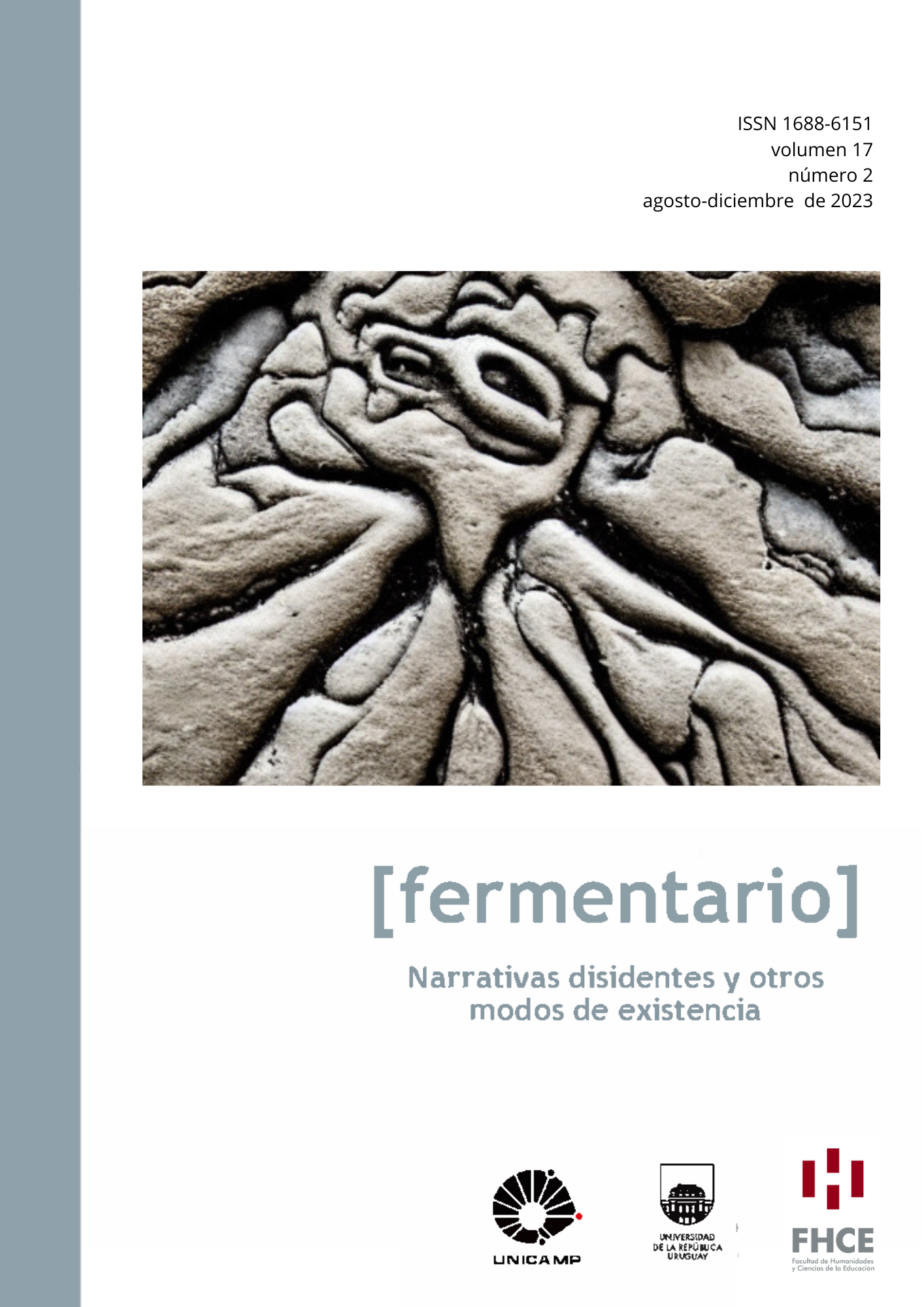Education towards the emancipatory empowerment of subjects or the stone of Sisyphus: Educação para o empoeiramento emancipatório dos súditos ou a pedra de Sísifo
Published 2023-12-27
Keywords
- Épiméleia,
- Empodermiento emancipador,
- Filosofía de la educación
- Épiméleia,
- Empowerment emancipator,
- Philosophy of education
- Épiméleia,
- Empoeiramento emancipado,
- Filosofia da educação
How to Cite
Abstract
Education is fundamental for the construction of a democratic and just society. The state of
political disbelief and a marked existential crisis in a large part of society are indicators that
alert us to the need to rethink the role that education assumes now. The purpose of this work
was to make visible the epiphenomenon that is in the process of acquiring features of
dehumanization. The bibliographical, reflexive and experiential heuristics allowed us to infer
an answer to the question posed: what is the primary function of education? The classical heritage offered a clear and forceful answer: update the épiméleia. Education represents the
great occasion for this personal practice and in the community of learners in its fullest sense:
teaching and learning to think about oneself and the other, in that order of priorities. The
greatest expectation of this study aims to delve into this topic and form communities of
inquiry in the classroom to problematize reality as a possible form of emancipatory
empowerment of the subjects.
Downloads
References
- Andreassi Cieri, A. (2015). Emancipación: breve recorrido por el término. Kult-ur, 2(3), 35-54. Recuperado de
- https://www.aacademica.org/alejandro.andreassi.cieri/5.pdf
- Archibald, T., y Wilson, T. (2011). Rethinking Empowerment: Theories of Power and the Potential for
- Emancipatory Praxis. En Adult Educaction Research Conference 2011. Conference Proceedings,
- Toronto. Recuperado de
- https://newprairiepress.org/cgi/viewcontent.cgi?referer=&httpsredir=1&article=3127&context=aerc
- Balcázar Moreno, M. (2018, julio 14). Jacques Rancière: «La política es imaginación». Milenio. Recuperado de
- https://www.milenio.com/cultura/laberinto/jacques-ranciere-la-politica-es-imaginacion
- Bourdieu, P. (1985). ¿Qué significa hablar? Madrid: Akal.
- Bourdieu, P. (2018). Las estrategias de la reproducción social. Buenos Aires: Siglo Veintiuno Editores.
- Burke, M., y Troscianko, E. (Eds.). (2017). Cognitive Literacy Science: Dialogues between Literature and
- Cognition. Nueva York: Oxford University Press.
- De Sousa Santos, B. (2018). Más allá del pensamiento abisal: de las líneas globales a las ecologías de saberes.
- En M. P. Meneses, J. Arriscado Nunes, C. Lema Añón, A. Aguiló Bonet y N. Lino Gomes (Comps.),
- Boaventura de Sousa Santos. Construyendo las epistemologías del sur: para un pensamiento
- alternativo de alternativas. Volumen I (pp. 585-599). Buenos Aires: Clacso.
- Díaz Genis, A. (2015). La formación humana desde una perspectiva filosófica: inquietud, cuidado de sí y de los
- otros, autoconocimiento. Buenos Aires: Biblos.
- Foucault, M. (2012). Hermenéutica del sujeto. Buenos Aires: Altamira.
- Gomes, N. L. (2018). Educación para otro mundo posible. Presentación. En M. P. Meneses, J. Arriscado Nunes,
- C. Lema Añón, A. Aguiló Bonet y N. Lino Gomes (Comps.), Boaventura de Sousa Santos.
- Construyendo las epistemologías del sur: para un pensamiento alternativo de alternativas. Volumen II
- (pp. 526-539). Buenos Aires: Clacso.
- Grimal, P. (1989). Diccionario de mitología griega y romana. Barcelona: Paidós.
- Habermas, J., y Ratzinger, J. (2008). Entre razón y religión. Dialéctica de la secularización. Ciudad de México:
- Fondo de Cultura Económica.
- La Boétie, E. de (2008). El discurso de la servidumbre voluntaria. Buenos Aires: Terramar.
- Meneses, M. P., Arriscado Nunes, J., Lema Añón, C., Aguiló Bonet, A., y Lino Gomes, N. (Comps.). (2018).
- Boaventura de Sousa Santos. Construyendo las epistemologías del sur: para un pensamiento
- alternativo de alternativas. Volumen II. Buenos Aires: Clacso.
- Nussbaum, M. (2013). La nueva intolerancia religiosa. Cómo superar la política del miedo en una época de
- inseguridad. Barcelona: Paidós.
- Pizzo, M. E. (2016). Desarrollo infantil y pobreza: representaciones e identidades sociales. En E. J. Huaire
- Ignacio, A. M. Elgier y G. D. Clerici (Comps.), Pensar la niñez. Psicología del desarrollo desde una perspectiva
- americana (pp. 77-96). Lima: Grijley.
- Ryynänen, S., y Nivala, E. (2017). ¿Empoderamiento o emancipación? Interpretaciones desde Finlandia y más
- allá. Pedagogía Social. Revista Interuniversitaria, (30), 35-40. Recuperado de
- https://www.redalyc.org/pdf/1350/135052204004.pdf

